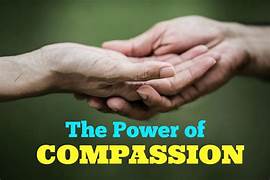
The parable of the Good Samaritan, found in Luke 10:25-37, is one of the most well-known teachings of Jesus. It tells the story of a man who was beaten, robbed, and left for dead along the road. While a priest and a Levite passed by without offering help, a Samaritan—a person traditionally despised by the Jews—stopped, tended to the man’s wounds, and ensured his care. This act of compassion has left an enduring legacy, providing a profound model for Christian support and service.
Breaking Barriers with Compassion
The Good Samaritan broke social, ethnic, and religious boundaries to help someone in need. In doing so, he exemplified what it means to truly love one’s neighbor. Jesus used this parable to answer the question, “Who is my neighbor?” and turned the focus from identifying who deserves love to showing how to love without boundaries.
This model of support challenges believers to step beyond comfort zones and societal norms. It encourages us to look past differences and prejudices to see the shared humanity in every person. Christian compassion does not ask, “Is this person worthy of my help?” but instead, “How can I serve them in love?”
Characteristics of the Samaritan’s Support
The Samaritan’s actions reveal several qualities that should define Christian support:
- Initiative: He did not wait for someone else to help. He acted immediately upon seeing the need.
- Sacrifice: He used his own resources—wine, oil, and money—to care for the injured man.
- Ongoing Commitment: He ensured the man’s continued care by arranging for his stay at an inn and offering to pay any additional expenses.
These qualities reflect Christ’s own ministry and call us to follow in His footsteps. Compassion that costs us something is often the most Christ-like of all.
A Model for Modern Ministry
The legacy of the Good Samaritan can be seen in countless Christian ministries today. Homeless shelters, food banks, addiction recovery centers, and crisis pregnancy clinics all echo the Samaritan’s heart. They exist because individuals and churches recognize the need to offer help without discrimination.
Moreover, Christian support is not limited to organized efforts. It also shows up in daily acts of kindness—checking in on a lonely neighbor, volunteering at a local mission, or simply listening to someone in distress. In all these things, the spirit of the Good Samaritan lives on.
Conclusion: Go and Do Likewise
At the end of the parable, Jesus commands, “Go and do likewise.” This is not just a call to admire the Samaritan’s compassion, but to imitate it. Christian support, rooted in the love of Christ, is meant to be active, inclusive, and sacrificial.
The Good Samaritan’s legacy invites us to live out our faith by being present in the lives of those who are hurting. When we do so, we not only honor Christ’s teachings but also become part of the healing process that God desires for a broken world. By embracing this model, we become true neighbors in the eyes of God.








